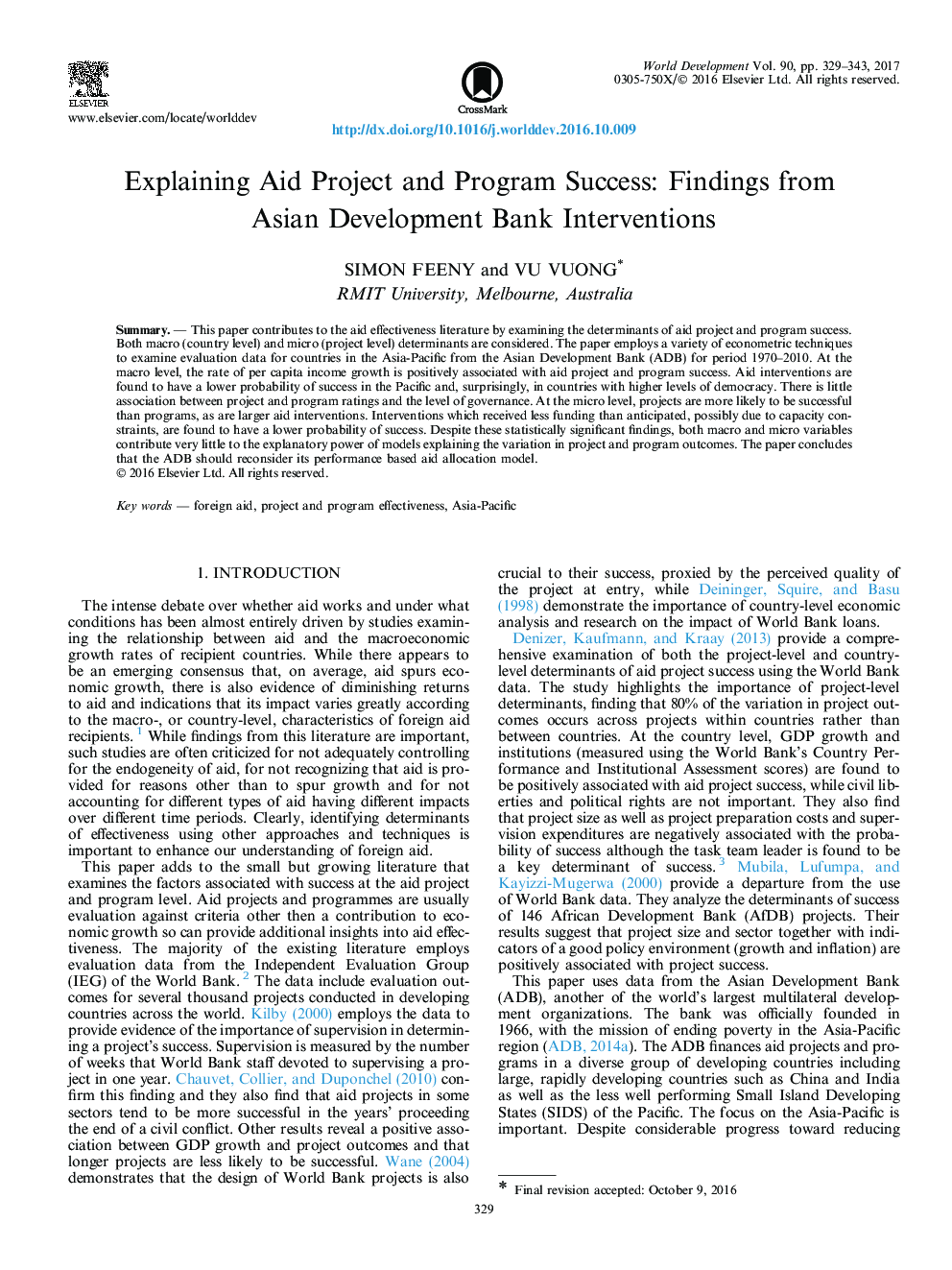| Article ID | Journal | Published Year | Pages | File Type |
|---|---|---|---|---|
| 5105258 | World Development | 2017 | 15 Pages |
Abstract
This paper contributes to the aid effectiveness literature by examining the determinants of aid project and program success. Both macro (country level) and micro (project level) determinants are considered. The paper employs a variety of econometric techniques to examine evaluation data for countries in the Asia-Pacific from the Asian Development Bank (ADB) for period 1970-2010. At the macro level, the rate of per capita income growth is positively associated with aid project and program success. Aid interventions are found to have a lower probability of success in the Pacific and, surprisingly, in countries with higher levels of democracy. There is little association between project and program ratings and the level of governance. At the micro level, projects are more likely to be successful than programs, as are larger aid interventions. Interventions which received less funding than anticipated, possibly due to capacity constraints, are found to have a lower probability of success. Despite these statistically significant findings, both macro and micro variables contribute very little to the explanatory power of models explaining the variation in project and program outcomes. The paper concludes that the ADB should reconsider its performance based aid allocation model.
Keywords
Related Topics
Social Sciences and Humanities
Economics, Econometrics and Finance
Economics and Econometrics
Authors
Simon Feeny, Vu Vuong,
